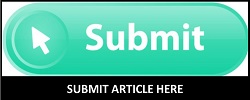Aplikasi Service Learning Merdeka Belajar Kampus Merdeka: Mendesain Visi Misi Sekolah dengan Canva
DOI:
https://doi.org/10.24036/abdi.v4i1.170Keywords:
Merdeka Belajar Kampus Merdeka, Service Learning, Vission-MissionAbstract
Service learning is a method of learning provided to students by combining knowledge obtained formally in the classroom and activities that provide benefits to the community. The purpose of this devotion is to benefit the school through the application of theory that has been obtained by students during the learning process of Computer Technology IV courses by utilizing service learning methods. Lectures are not only sharing knowledge,but also students can directly practice their skills that eventually provide benefits to the school in the form of output, they are the availability of mission-vision billboards with attractive designs and easily accessible to the community, so that schools can get the benefit from the existence of this devotional activity in the form of the availability of mission vision banners with attractive graphic design. The location of the activity is in Pa'Bundunkang State Elementary School and is carried out for 7 days by students by involving lecturers as mentors and teachers as escorts. The method of implementation starts from the stage of preparation, implementation, and strengthening/reflection. The result from this activity is that Pa'Bundukang State Elementary School can renew the appearance of the school's vision-mission as a means to socialize the school's vision-mission to students, school human resources, communities, and stakeholders. In addition, students are able to be more sensitive to social circumstances, and can apply graphic design materials using Canva applications obtained in computer technology iv classes, so that competence of knowledge, skills, and attitudes can be developed.
Downloads
References
Angela, T. (2014). Challenges to Meaningful Learning in Social Studies – The Key Competences as an Opportunity to Students’ Active Participation. Procedia - Social and Behavioral Sciences, 128, 192–197. https://doi.org/10.1016/j.sbspro.2014.03.142
Baharuddin, M. R. (2021). Adaptasi Kurikulum Merdeka Belajar Kampus Merdeka (Fokus : Model MBKM Program Studi). Jurnal Studi Guru dan Pembelajaran, 4(1), 195–205.
Bringle, R. G., & Hatcher, J. (1996). Implementing Service-Learning in Higher Education. Journal of Higher Education, 67, 221–229.
Calam, A., & Qurniati, A. (2016). Merumuskan Visi dan Misi Lembaga Pendidikan. Jurnal SAINTIKOM: Sains Dan Komputer, 15(1), 53–68.
Faiz, A., & Kurniawaty, I. (2020). Konsep Merdeka Belajar Pendidikan Indonesia dalam Perspektif Filsafat Progresivisme. Konstruktivisme: Jurnal Pendidikan dan Pembelajaran, 12(2), 155–164. https://doi.org/https://doi.org/10.35457/konstruk.v12i2.973
Handoyo, L. D. (2014). Menumbuhkembangkan Karakter Mahasiswa Melalui Service Learning Program di Mata Kuliah Ilmu Gizi dan Kesehatan. Widya Dharma: Jurnal Kependidikan, 26(2), 183–200.
Kostiainen, E., Ukskoski, T., Ruohotie-Lyhty, M., Kauppinen, M., Kainulainen, J., & Mäkinen, T. (2018). Meaningful Learning in Teacher Education. Teaching and Teacher Education, 71, 66–77. https://doi.org/10.1016/j.tate.2017.12.009
Maulidi, A., Syamswisna, S., Daningsih, E., Ariyati, E., & Marlina, R. (2018). Pengukuran Tingkat Pemahaman Mahasiswa Terhadap Visi Misi Program Studi Pendidikan Biologi FKIP Untan. Bio-Pedagogi, 7(2), 91–95. https://doi.org/10.20961/bio-pedagogi.v7i2.27634
Nazlah, N., & Sulistyo, W. D. (2021). Pendampingan Sekolah Online Siswa Sekolah Dasar Melalui Kegiatan SIPUNG (Sekolah Ing Kampung) Pada Masa Pandemi Covid 19 Sebagai Solusi Mengatasi Pendidikan di Desa Nguling-Pasuruan. Engagement: Jurnal Pengabdian Kepada Masyarakat, 5(1), 221–232. https://doi.org/10.29062/engagement.v5i1.502
Nursita, L. (2021). Dampak Mata Kuliah Kewirausahaan terhadap Minat Berwirausaha Mahasiswa. Ideas: Jurnal Pendidikan, Sosial, dan Budaya, 7(3), 83. https://doi.org/10.32884/ideas.v7i3.401
Nusanti, I. (2014). Strategi Service Learning Sebuah Kajian untuk Mengembangkan Kegiatan Pembelajaran. Jurnal Pendidikan dan Kebudayaan, 20(2), 251–260. https://doi.org/10.24832/jpnk.v20i2.142
Primasari, C. H., & Wibisono, Y. P. (2021). Video Iklan Sebagai Sarana Peningkatan Impresi Publik Terhadap Produk Komunitas UMKM Kotabaru Yogyakarta. Abdi: Jurnal Pengabdian dan Pemberdayaan Masyarakat, 3(2), 127–134. https://doi.org/10.24036/abdi.v3i2.111
Puteri, D. D. Y., & Prihantini. (2020). Rumusan Visi Misi dan Konsistensinya terhadap Kultur Sekolah. Intelektiva: Jurnal Ekonomi, Sosial dan Humaniora, 2(2), 11–18.
Rachmayanie, R., Rachman, A., Setiawan, M. A., & Yunita, D. A. (2019). Sosialisasi Visi dan Misi Program Studi Bimbingan dan Konseling FKIP ULM kepada Sivitas Akademika, Alumni dan Guru BK Se-Provinsi Kalimantan Selatan.
Saripudin, D., Yulifar, L., & Anggraini, D. N. (2021). Pelatihan Pembuatan dan Pemanfaatan Replika Sejarah dan Peta E-Pen Bagi Guru-Guru SMA/MA. Abdi: Jurnal Pengabdian dan Pemberdayaan Masyarakat, 3(1), 1–10. https://doi.org/10.24036/abdi.v3i1.76
Sukaningtyas, D., Satori, D., & Sa’ud, U. S. (2017). Pengembangan Kapasitas Manajemen Sekolah dalam Membangun Pemahaman Visi dan Misi. Cakrawala Pendidikan, 36(2), 257–266.
Susanto, R., Syofyan, H., Febriani, E., Nisa, M. A., Oktafiani, Yolanda, Y. D., Tobing, L. A. L., Diani, S. B., Hendrawan, B. B., Alfira, A., Cahyaningrum, D. E. N., Oktavia, H., & Nurlinda, D. B. (2021). Pemberdayaan Keterampilan Model Komunikasi Instruksional Guru SD. International Journal of Community Service Learning, 5(2), 84–94. https://doi.org/http://dx.doi.org/10.23887/ijcsl.v5i1











